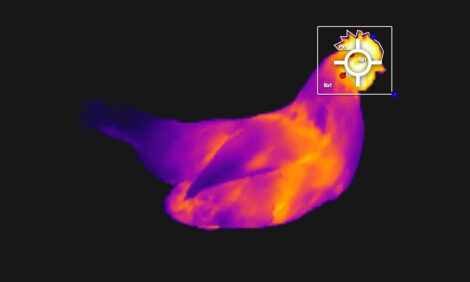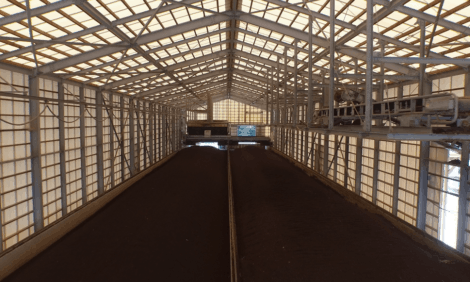



Changes in Selected Biochemical Indices Resulting from Various Pre-sampling Handling Techniques in Broilers
Researchers in the Czech Republic found that broilers showed signs of stress – in terms of elevated plasma corticosterone and lactate concentrations – during handling, especially when this was done with a lack of care or for longer than two minutes.It is not yet clear whether it is possible to avoid satisfactorily sampling-induced stress interference in poultry, according to Petr Chloupek and colleagues at the University of Veterinary and Pharmaceutical Science in Brno in the Czech Republic in a paper published recently in Acta Veterinaria Scandinavica. They explain that more studies on the pattern of physiological response and detailed quantification of stress connected with the first few minutes of capture and pre-sampling handling in poultry are required.
Their study focused on detection of changes in the corticosterone level and concentrations of other selected biochemical parameters in broilers handled in two different manners during blood sampling (involving catching, carrying, restraint, and blood collection itself) that lasted for various time periods of between 30 and 180 seconds.
Stress effects of pre-sampling handling were studied in a group (n=144) of unsexed Ross 308 broiler chickens aged 42 days. Handling (catching, carrying, restraint, and blood sampling itself) was carried out in a gentle (i.e. caught, held and carried carefully in an upright position) or rough (i.e. caught by the leg, held and carried with lack of care in inverted position) manner and lasted for 30, 60, 90, 120, 150 and 180 seconds. Plasma corticosterone, albumin, glucose, cholesterol, lactate, triglycerides and total protein were measured in order to assess the stress-induced changes to these biochemical indices following handling in the first few minutes of capture.
The Brno researchers found that pre-sampling handling in a rough manner resulted in considerably higher plasma concentrations of all biochemical indices monitored when compared with gentle handling.
The concentrations of plasma corticosterone after 150 and 180 seconds of handling were considerably higher (P<0.01) than concentrations after 30 to 120 seconds of handling, regardless of handling technique.
Concentrations of plasma lactate were also increased by prolonged handling duration. Handling for 90 to 180 seconds resulted in a highly significant elevation of lactate concentration in comparison with 30 seconds handling, regardless of handling technique. As with corticosterone, a strong positive correlation was found between plasma lactate concentration and the duration of pre-sampling handling.
No other biochemical indices monitored showed any correlation pattern in connection with duration of pre-sampling handling.
Chloupek and co-authors concluded that their results indicate the pre-sampling procedure may be a considerably stressful procedure for broilers, particularly when carried out with lack of care and exceeding 120 seconds.
Reference
Chloupek P., I. Bedanova, J. Chloupek and V. Vecerek. 2011. Changes in selected biochemical indices resulting from various pre-sampling handling techniques in broilers. Acta Veterinaria Scandinavica, 53:31 doi:10.1186/1751-0147-53-31
Further Reading
| - | You can view the full report by clicking here. |
September 2011








